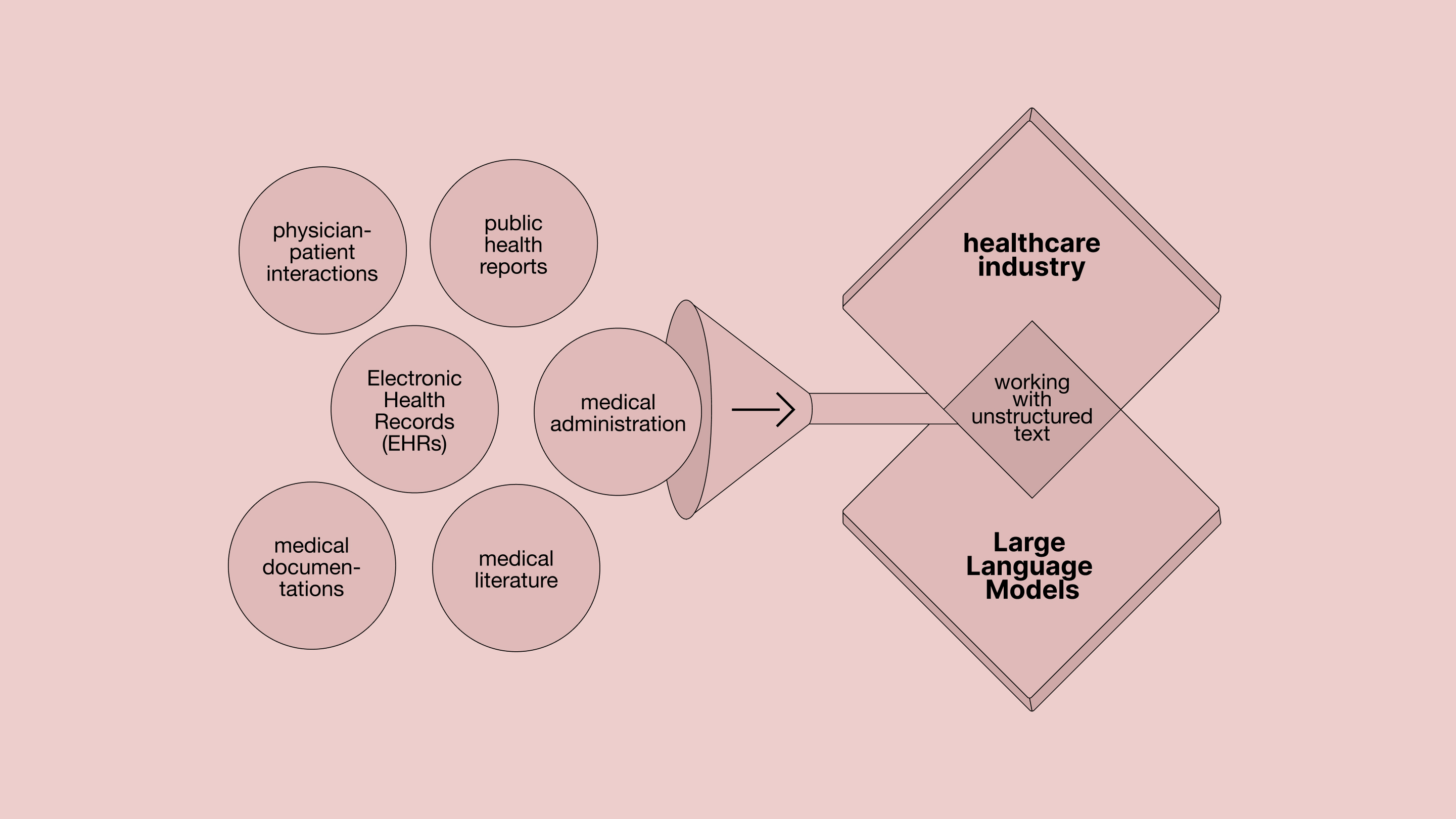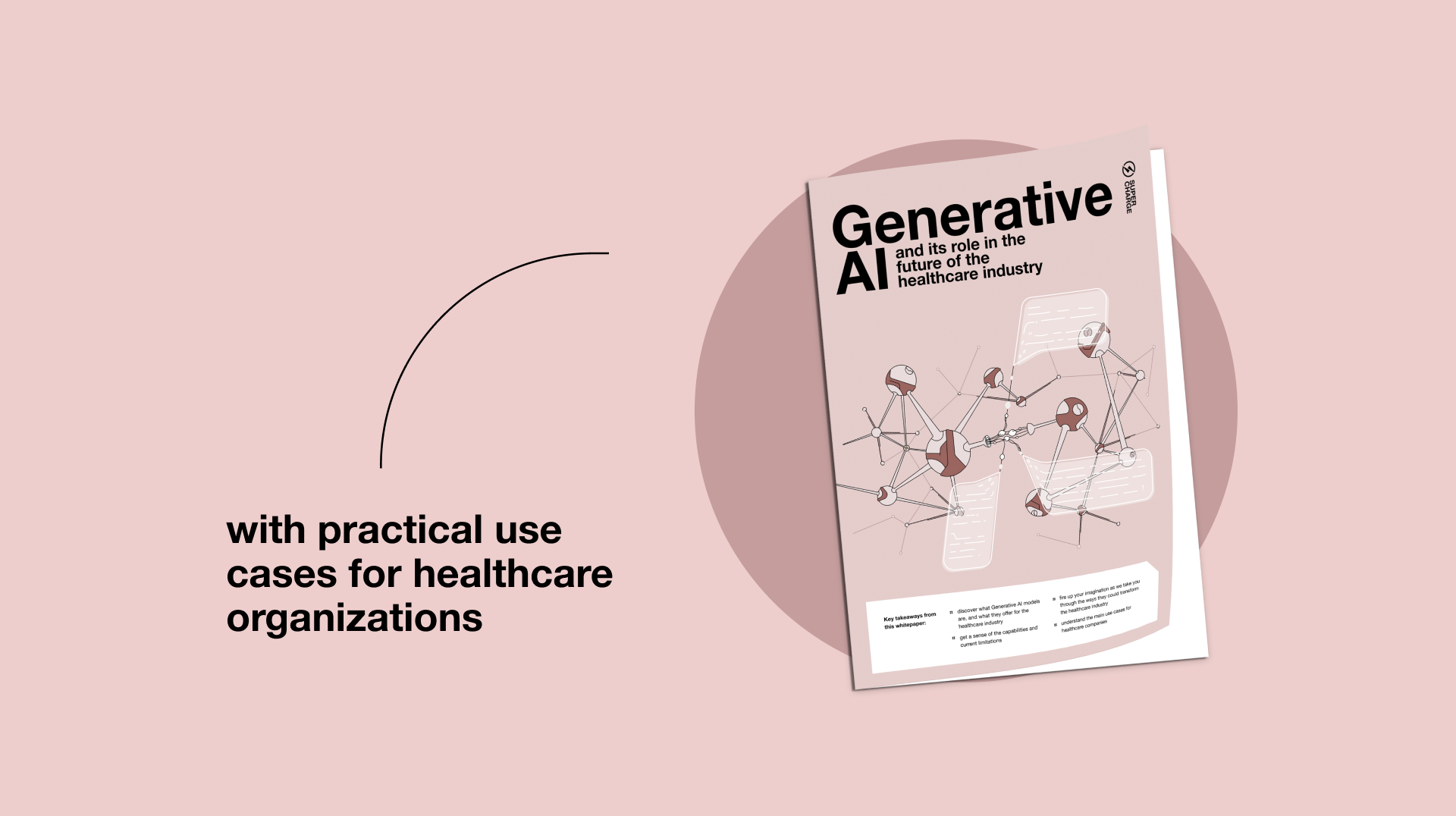
Bence Lukacs
Experience Design Lead


Artificial Intelligence (AI) has emerged as a revolutionary force across several sectors, and its potential to enhance the healthcare industry is particularly promising to our society.
AI-powered tools can facilitate more accurate diagnosis, and personalized treatment plans, and enable precision medicine by utilizing the vast amounts of data generated within the healthcare ecosystem. However, despite its tremendous potential, the adoption of AI in healthcare has been relatively slow compared to other industries.
Past efforts to integrate AI into healthcare have primarily centered on large-scale research projects like speeding up drug discovery or utilizing machine learning algorithms for early diagnosis and medical imaging, such as radiology, CT scans, or detecting skin cancers.
While these applications are essential and hold great promise, they necessitate extensive funding and resources to develop. Moreover, these applications use specialized domain-specific machine learning models trained on high-quality labeled datasets, which are difficult to acquire.
The lack of access to these resources has impeded many potential players from entering the field of healthcare AI innovation and hindered the widespread adoption of AI solutions in everyday healthcare settings.
Recently, the rapid advancement of generative AI models, in particular, Large Language Models (LLMs) like, ChatGPT have the potential to bring a new wave of AI solutions to healthcare, with a widespread impact on everyday healthcare operations from medical education to physician-patient relationship to prevention and personalized care.

Most interactions and data within the everyday healthcare ecosystem comprise unstructured text, such as Electronic Health Records (EHRs), medical literature, clinical trial documents, public health reports, and documentation of clinician-patient interactions.
This prevalence of unstructured text is precisely where Large Language Models like GPT can make a substantial difference in healthcare. They can quickly read, process, and analyze a large amount of text (in written form or synthesized verbally) and convert it into medical insights, diagnoses, summaries, recommendations, and chat messages.
Large Language Models, pre-trained on medical text, render advanced AI capabilities readily available and accessible to a broader spectrum of stakeholders within the healthcare industry, paving the way for a new era of AI-driven innovations in the field.

In our whitepaper, we present a comprehensive guide to this transformative technology and offer an overview of its potential applications throughout the healthcare management process. Download the full report to: